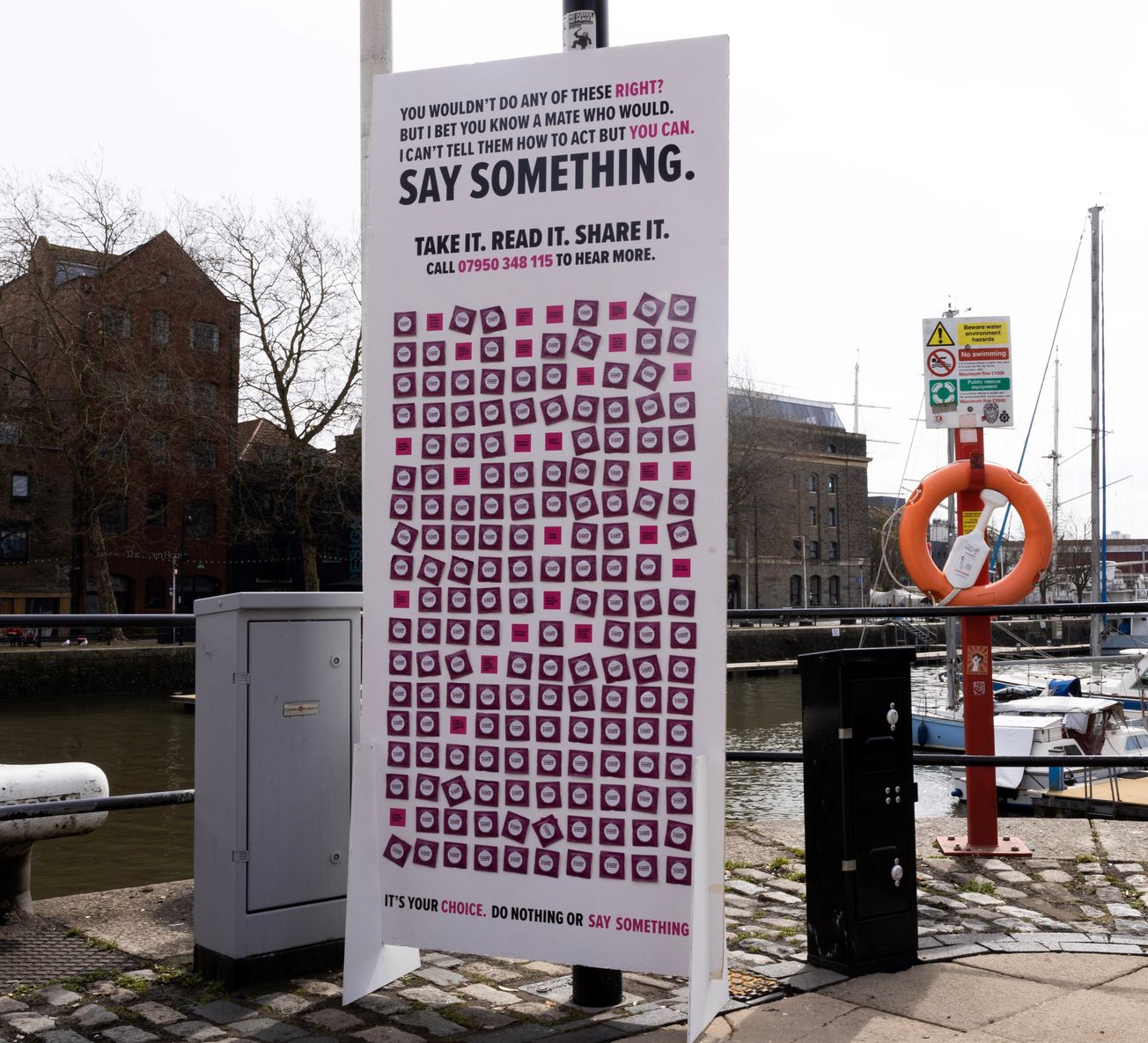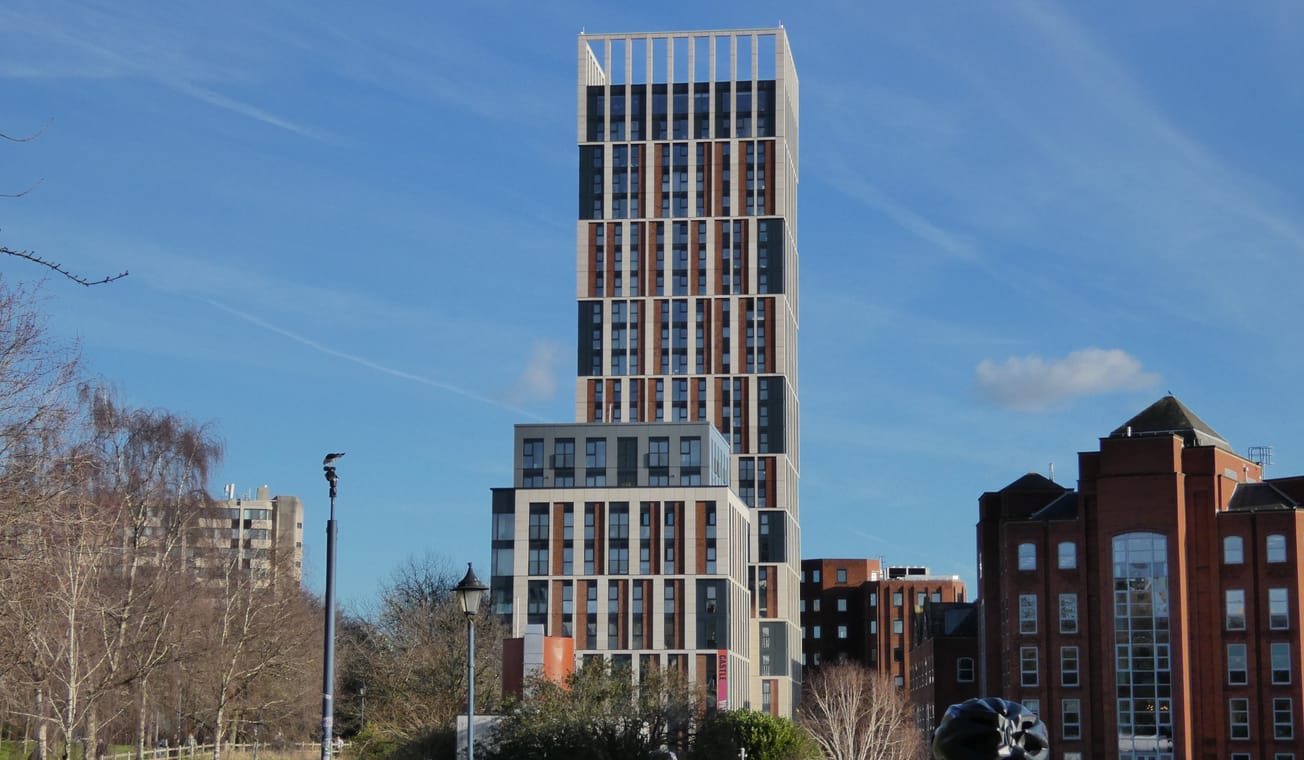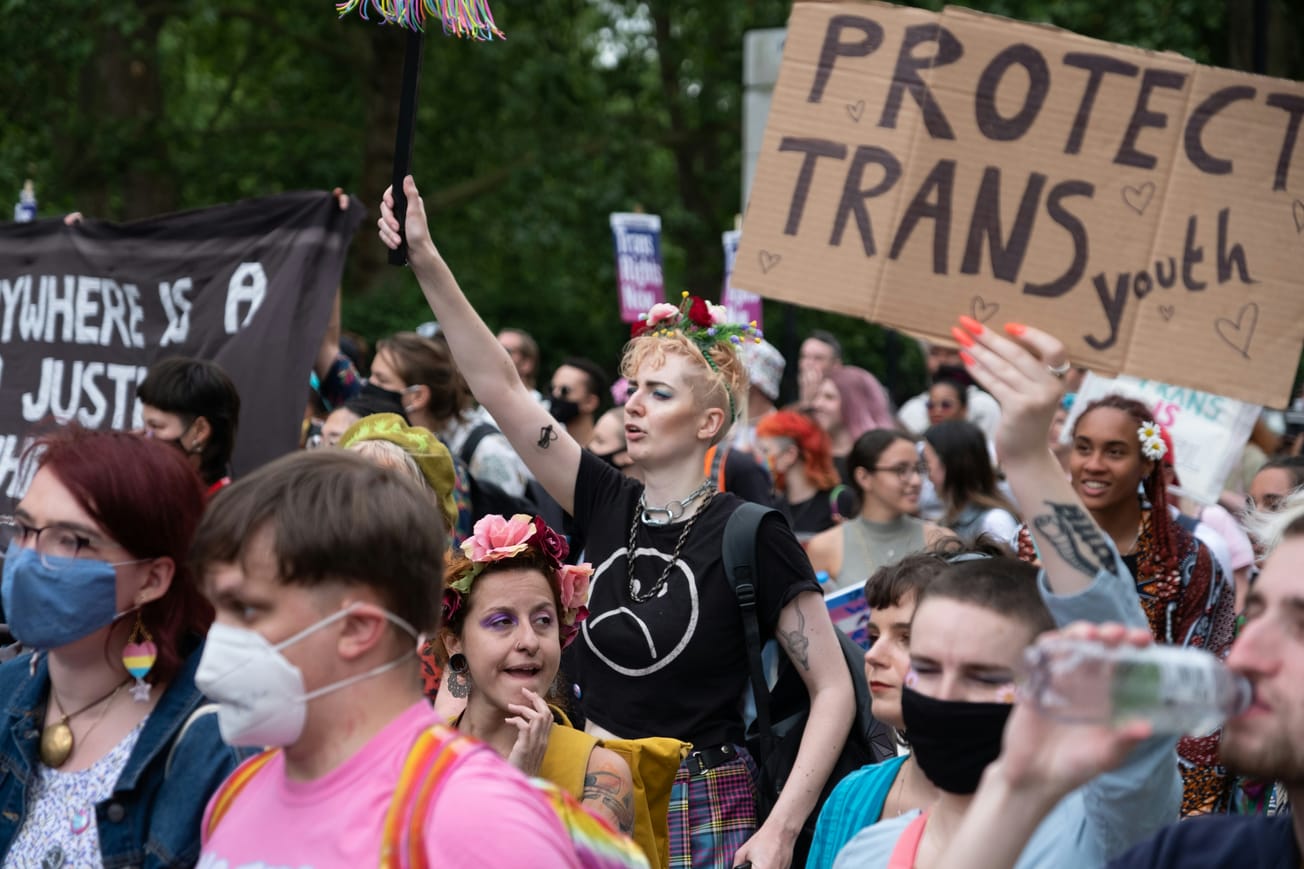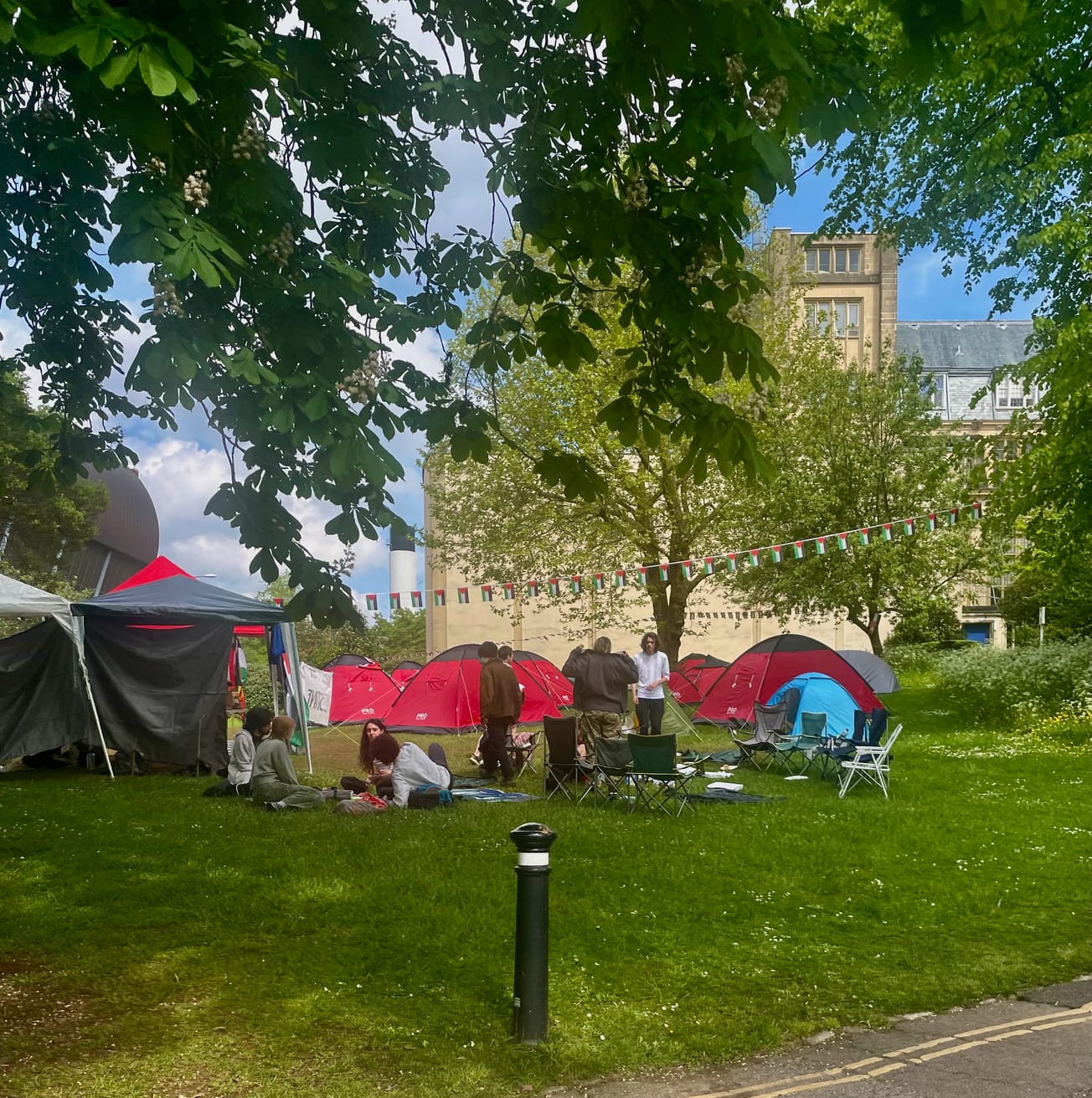By Marine Saint, Features Columnist
In April, University of Bristol students launched a new anti-sexual harassment campaign titled ‘Never Have I Ever’ (NHIE), aiming to bring to light the universality of daily harassment and open the debate on the accountability of problematic behaviour. The team behind NHIE presented the campaign via social media, posters, and a physical, interactive display on Pero’s Bridge in Bristol’s harbourside.
The interactive display featured poignant statements demonstrating the need for bystander intervention as casual distressing comments are frequently overlooked. The project modelled their design from the locks on Pero’s Bridge, with slogans such as ‘Just because she’s silent, doesn’t mean she’s comfortable’, and ‘It’s your choice. Do nothing or say something’.
‘Never Have I Ever’ takes its inspiration from the popular drinking game familiar to many students but does so in order to recognise the impact of words on women’s safety and the harmful attitudes perpetuated by the culture of male domination in the night-life world. A recent campaign from the Mayor of London, ‘Have a Word’, similarly focused on the impact of language as a starting point for sexual harassment and the need to call out sexist behaviour and misogyny.
The Bristol-based campaign started by researching the surge of sexual violence towards women, using the Student Union’s ‘No Means No: Consent Culture and Sexual Harassment’ campaign to examine the pervading presence of assault and harassment in the student community. The statistics from this report are especially enlightening with regards to the predominance of sexual violence for students. The report revealed that currently 44 per cent of women did not know that they had been harassed or assaulted in the moment, with 24 per cent of Bristol students experiencing assault or harassment more than five times.
‘Never Have I Ever’ reclaims the significance of minor acts and ignored unpleasantries by reinforcing the damage they still achieve.
The uncertainty of addressing harassment and the taboo surrounding accountability was evidently a major determinant for the campaign’s direction, with the SU report underlining how 95% of students did not report or contact any relevant authorities after experiencing assault or harassment. Indeed, the NHIE team aim to change the field of discussion around this incredibly harmful issue and encourage self-reflection on our own and our peers’ actions and the overwhelming, but not exclusive, role of men as perpetrators of such violence.
There are significant barriers to changing the culture around violence towards women by way of social attitudes, and legal barriers to prosecution offered by Police and Security Services. In focusing on sensitising the problems and slights faced by women every day, NHIE reclaims the significance of minor acts and ignored unpleasantries by reinforcing the damage they still achieve.
As articulated by President of 180 Degrees Consulting Bristol, Hannah Jusu-Sheriff, this is an area that is overlooked: ‘only the more extreme elements are focused on when really there is middle ground and silent majority that could be a great starting point for further dialogue.’ This campaign has thus maximised discussion across their social media and display platforms to actively generate conversations between friends to understand the repercussions of problematic behaviour. In practice, the NHIE team have succeeded in influencing Student Union policy, having been consulted on the SU Sexual Harassment policies, campaigns, and strategy.
There has been success with a wider move in Bristol to address the elimination of excuses from the discourse of sexual assault and harassment and to centre the debate on improving one’s actions. The NHIE team spoke with key members of Bristol City Council’s Women’s Board and the Women’s Equality Party (WEP) to improve the messaging of campaigns, which is particularly pertinent given the tendency of victim blaming around issues of sexual violence. The WEP, for example, launched a campaign against the Met Police, calling for a statutory enquiry into misogyny across all police forces.
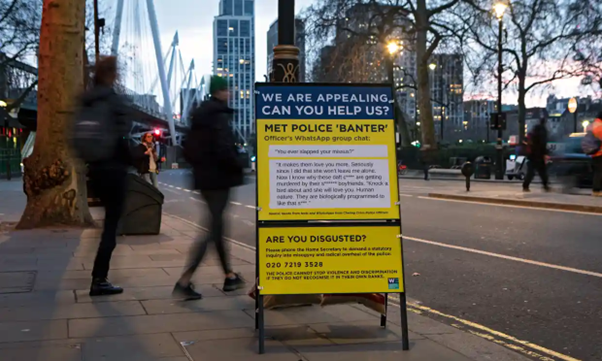
‘Never Have I Ever’ demonstrates the necessity of a Bristol-specific movement towards addressing this issue for students and locals. The Head of Strategy at NHIE and founder of ENCORE Events Patrick Keaveney underlined the personal aspects and aspirations of this campaign:
‘Having grown up in sports clubs there has always been an element of locker room talk. Sexual harassment is partly enabled through the lack of action and enforcement by community figures or friends. I am so excited for the change in messaging that we have seen recently and delighted to see some positive change come as a result of this campaign.’
No Means no – Bristol SU shares results of consent culture and sexual harassment research
Bristol’s nightlife scene unpacked: spiking spate and street (un)safety
The locker room talk culture equally featured as part of a condom wall display for the Home Office’s accountability campaign, emphasising the emergence of public discussions around sexual assault and harassment, and the need for tangible reminders of what constitutes misogynistic and harmful language. Despite only forming five months ago, ‘Never Have I Ever’ marks a proactive step towards creating a safer environment for women and educating the public, including Bristol students, of the need to place the onus on those continuing often-ignored abusive remarks towards victims.
Featured Image: Patrick Keaveney / NHIE
Have you engaged with the NHIE campaign displays in Bristol?

